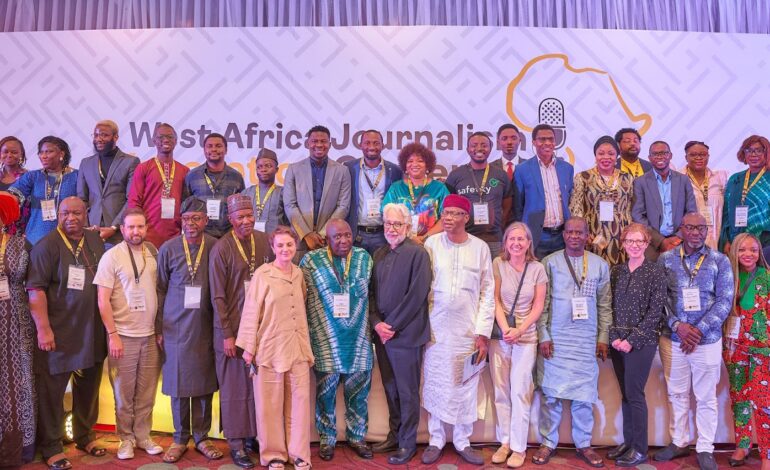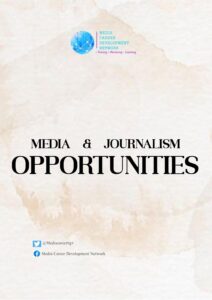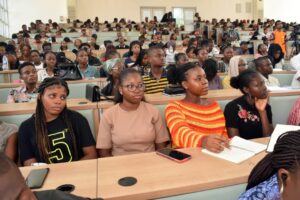The Centre for Journalism Innovation and Development (CJID) recently hosted the West Africa Journalism Innovation Conference. Phillip Anjorin writes on some major issues addressed in the programme.
In the heart of Africa, where diverse cultures, untold stories, and pressing challenges intersect, a beacon of hope emerges for the future of journalism on the continent.
The Centre for Journalism Innovation and Development (CJID) recently hosted an enlightening conference which was a melting pot of ideas and aspirations to shape the trajectory of journalism in Africa.
With the theme “Accountability Journalism: Nurturing Innovation for a Sustainable Future,” the two-day conference -held on July 25 and 26- brought together an array of media professionals, innovators, and stakeholders to discuss the transformative potential of journalism in fostering democratic accountability and the critical role innovation plays in ensuring its sustainable future.
In numbers, the conference hosted more than 400 delegates from 11 countries and 70 global thought leaders, providing expert insights at eight different panel sessions and six workshops.
The conference shed light on several sections affecting journalistic innovation ranging from advancing investigative reporting for democratic accountability to embracing cutting-edge data journalism techniques, adopting a solutions-oriented approach to reporting, navigating the impact of AI and digital technology on journalism, addressing information disorder in the digital age, and charting pathways for funding sustainability for newsrooms.
The vision for the future of journalism in Africa resonates with a sense of responsibility and opportunity. Embracing accountability journalism, media professionals at the programme acknowledged that the role extends beyond merely reporting events; they are custodians of truth, transparency, and democratic values.
READ ALSO: Media should lead campaign against unjust laws, violation of rights
A critical pillar of the conference’s discussions revolved around advancing investigative reporting for democratic accountability. Seasoned journalists and rising talents shared stories exposing human rights violations and promoting good governance. Through skilful storytelling and tenacious fact-finding, investigative journalists have the power to drive societal change and spur policymakers into action.
As the digital era continues to shape global media landscapes, data journalism emerges as a powerful tool in the arsenal of journalists. In a region as vast and diverse as Africa, data-driven storytelling allows journalists to distil complex information into accessible narratives, thus empowering citizens with knowledge and fostering informed decision-making.
The conference delved into innovative methodologies and tools, encouraging journalists to embrace data journalism’s potential to enhance transparency and public understanding. Richard Geves -Open Cities Lab’s founder- said most newsrooms struggle to meet the needs of their readers and establish trust in their works. He called for more technological investment in media operations.
“The intersection of tech and journalism lies in comprehending the implication of current events. Embracing a tech agenda within newsrooms has become essential, enabling the development of effective tech and data strategies.”
Artificial intelligence and digital technology have undoubtedly transformed journalism, introducing unprecedented possibilities and challenges. The conference addressed the potential of AI in enhancing newsroom efficiency, the ethics of AI-driven journalism, and the responsibility of media organisations to maintain editorial integrity while harnessing technological advancements. The review of digital technology’s impact on audience engagement and consumption patterns revealed valuable insights for adapting journalistic practices to the evolving media habits of African audiences.
In the digital age, where misinformation spreads like wildfire, combating information disorder is a priority. By examining the roots and consequences of misinformation, one of the panels explored strategies for promoting media literacy, fact-checking, and responsible reporting to safeguard the public’s right to accurate and unbiased information. Caroline Anipah, the Deputy Director of the Verification and Media Literacy programme at the CJID called for a collaboration between the media and tech companies, among other moves to tackle the current rise of fake news globally.
The conference explored funding sustainability for newsrooms, recognising that independent and robust media requires adequate resources. From exploring diversified revenue models to forging partnerships with philanthropic organisations and supporters of press freedom, participants sought to secure the financial backbone needed to sustain journalism’s vital role in African society. Kole Shettima -the African Director of the MacArthur Foundation- reiterated the organisation’s commitment to supporting independent press and promoting accountability journalism in Africa.
The conference was a resounding call to action which urged African journalists to embrace innovation, nurture accountability, and carve a sustainable path forward. As the embers of this enlightening gathering continue to burn, they ignite hope that journalism in Africa will rise to new heights, steering communities towards progress and prosperity.



